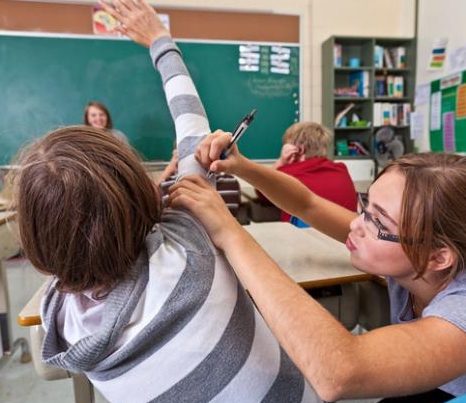Social media manipulation, including the Cambridge Analytica scandal and the allegations of Russian troll farms distorting elections, has brought sharply into focus that people are drawn more to hate and fear than love and honesty.
It’s also the basis of much journalism. As a journalist I did many more negative than positive stories. Friends would ask me, ‘Why doesn’t TV do good news stories.’ My standard reply was, ‘Because the audience doesn’t want it.’
I’ve often reflected on why that generalisation is true. Our task as communication professionals is to understand, not just what impacts people, but why.
Is it deeply embedded in our DNA, our instinct, to be drawn to the negative?
Anthropologists are interested in where the lines are drawn between instinct and what we learn: nature versus nurture. They look to it to try and explain why we humans developed so dramatically and other animals did not.
For instance, every creature has an instinctive fear response, and almost every bird and animal has a sound for alarm, if you like, the earliest language. As Yuval Harari notes in the book, Sapiens:
Green monkeys use calls of various kinds to communicate. Zoologists have identified one call that means ‘Careful! An eagle!’ A slightly different call warns ‘Careful! A lion!’ When researchers played a recording of the first call to a group of monkeys, the monkeys stopped what they were doing and looked upwards in fear. When the same group heard a recording of the second call, the lion warning, they quickly scrambled up a tree.
He goes on to theorise that as we humans evolved and formed bigger groups, living together became more complex. For the larger groups to survive language had to develop, as it was more important to know more about who in the group was a threat than those who were not. Harari theorises it’s what enabled us to form larger groups where other animals could not.
Social cooperation is our key for survival and reproduction. It is not enough for individual men and women to know the whereabouts of lions and bison. It’s much more important for them to know who in their band hates whom, who is sleeping with whom, who is honest, and who is a cheat.
All apes show a keen interest in such social information, but they have trouble gossiping effectively. Neanderthals and archaic Homo sapiens probably also had a hard time talking behind each other’s backs – a much maligned ability which is in fact essential for cooperation in large numbers.
Gossip usually focuses on wrongdoings. Rumour-mongers are the original fourth estate, journalists who inform society about and thus protect it from cheats and freeloaders.
This is of course theory, though based on numerous examples. And we humans do rapidly learn from what’s going on around us, which also separates us from the rest of the animals.
But perhaps our original survival instinct helps explain why we are drawn to the negative: why Trump most effectively plays to people’s fears, why politicians in opposition focus on the negative campaigning, why journalism is a necessary watchdog, and why the craft of change-management first demands scaring people out of the status quo; why lying and cheating is more interesting to us than honesty.
It’s one explanation of why Cambridge Analytica could boast of its the ability to target and then manipulate small groups, once they understood their fears. And why Facebook is so wrong to allow its data to be misused.





